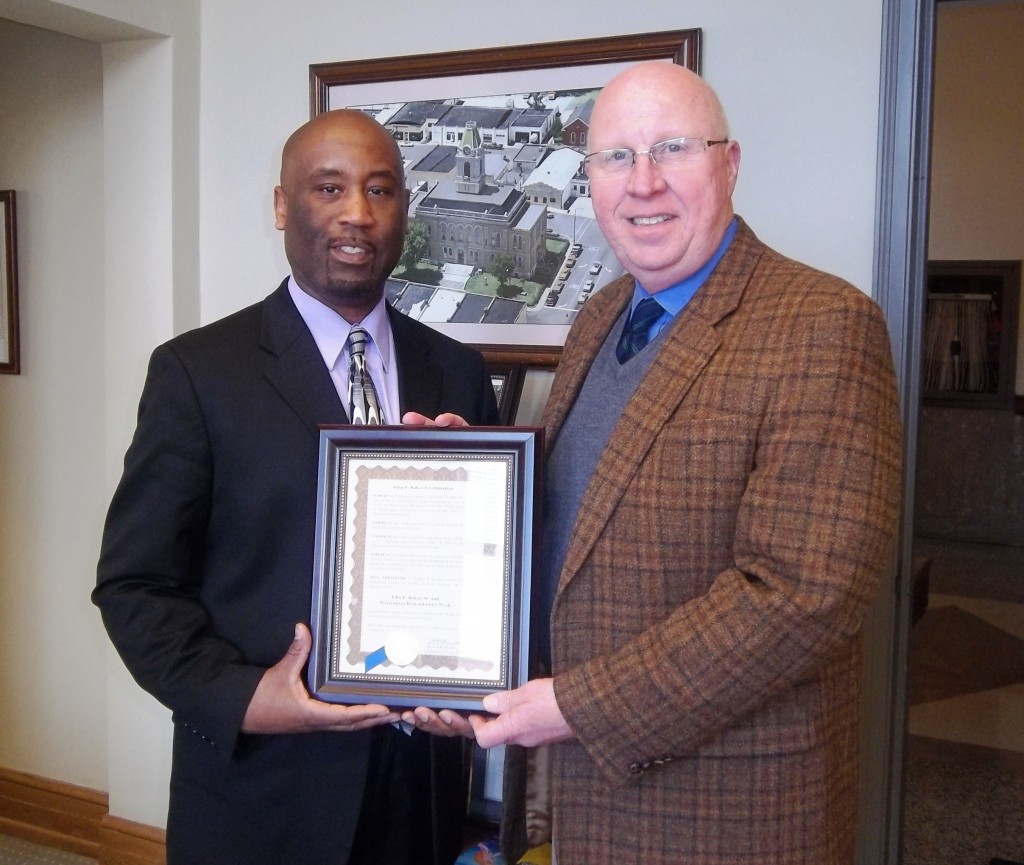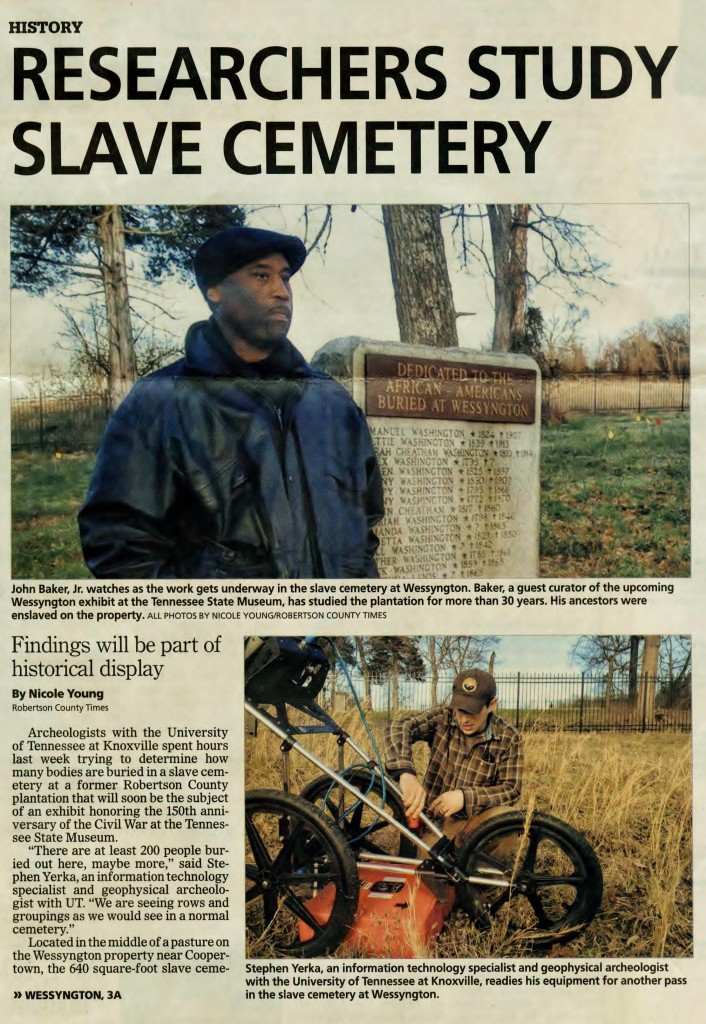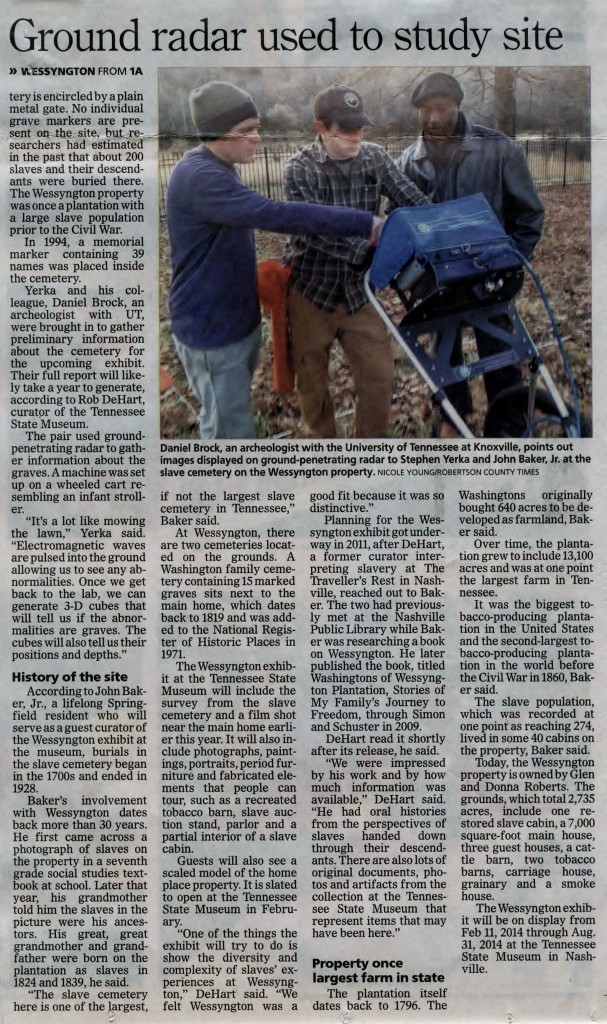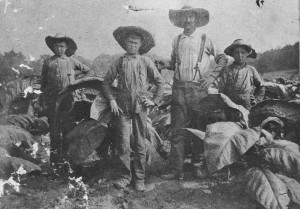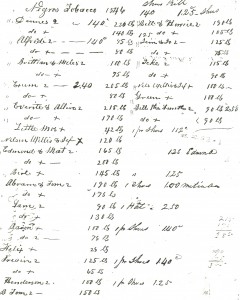On February 24th I was honored by Mayor Howard Bradley of Robertson County, who issued a proclamation declaring February 24th through March 3rd as John F. Baker Jr. and Wessyngton Remembrance Week.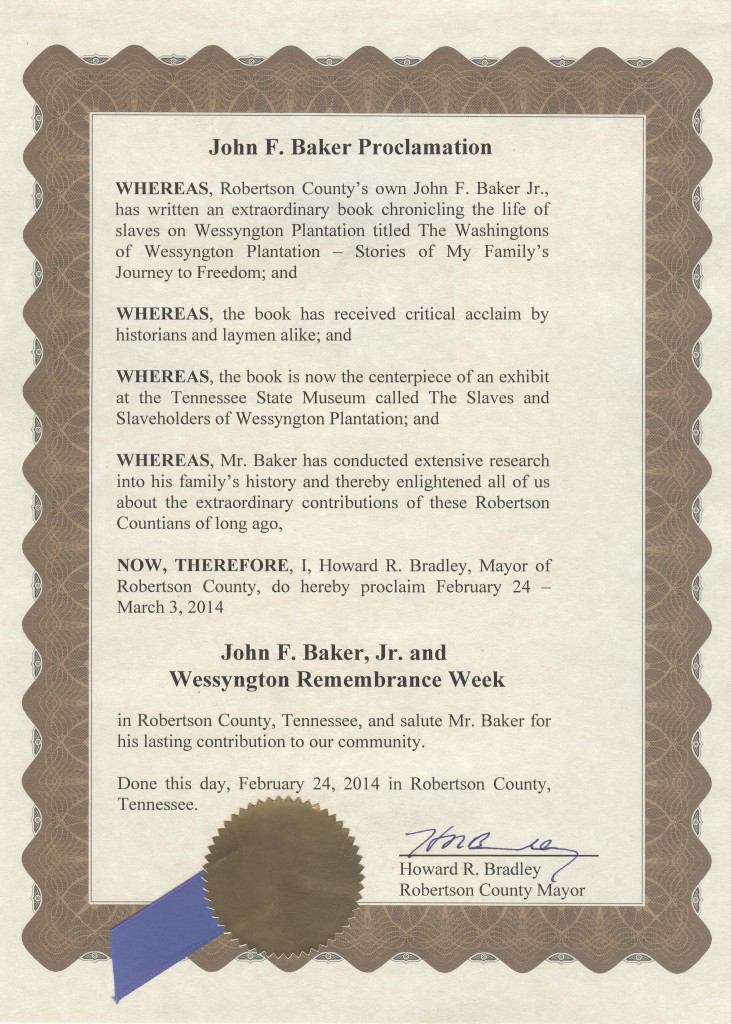
Posts Tagged ‘Add new tag’
COUNTY MAYOR DECLARES JOHN F. BAKER JR. AND WESSYNGTON REMEMBRANCE WEEK IN ROBERTSON COUNTY
Friday, March 28th, 2014White Sharecroppers on Southern Plantations
Friday, November 6th, 2009After the Civil War several former Wessyngton slaves remained on the plantation. Others moved to Nashville, to the north, surrounding counties and some purchased their own farms.
When the former slaves left the area many white farmers and African Americans came to Wessyngton Plantation and became sharecroppers and resided in the former slave cabins.
Under the sharecropping system, the landowner received two thirds of the crop and the tenant or sharecropper only received one third of the crop. The sharecropper was provided a house, mules, land, seed and fetilizer. They raised crops of tobacco, corn, wheat and rye.
African American and white sharecroppers continued farming on Wessyngton Plantation until the property was sold by the Washington family in 1983 nearly 200 years after the plantation was founded.
Slave Life On Southern Plantations
Saturday, October 17th, 2009Enslaved African Americans on Wessyngton Plantation worked under a task system. The plantation owner assigned a task to each individual. Once the task was completed the slave was free to work on his own crops of tobacco if he chose to do so. The owner usually assigned tasks that would take the entire day to complete. However, some of the fastest workers were able to complete the assigned tasks and work for themselves. The slaves were not required to work on Sunday and were off half days on Saturdays. Many of the slaves used this time to cultivate their own crops. The task system required less supervision by overseers than gang labor and gave slaves more control of their time.
The owner kept a list of how much tobacco each person raised and paid them after the crops were sold in New Orleans. The slaves used the money from the sale of the crops to purchase various items not provided by the plantation owner. The document above lists the names of men on Wessyngton Plantation in 1846 who raised their own crops and the items they purchased for their families.
I’m on MySpace
Thursday, February 5th, 2009I now have a MySpace page. Hope you will check it out.
www.myspace.com/johnbakerbooks
